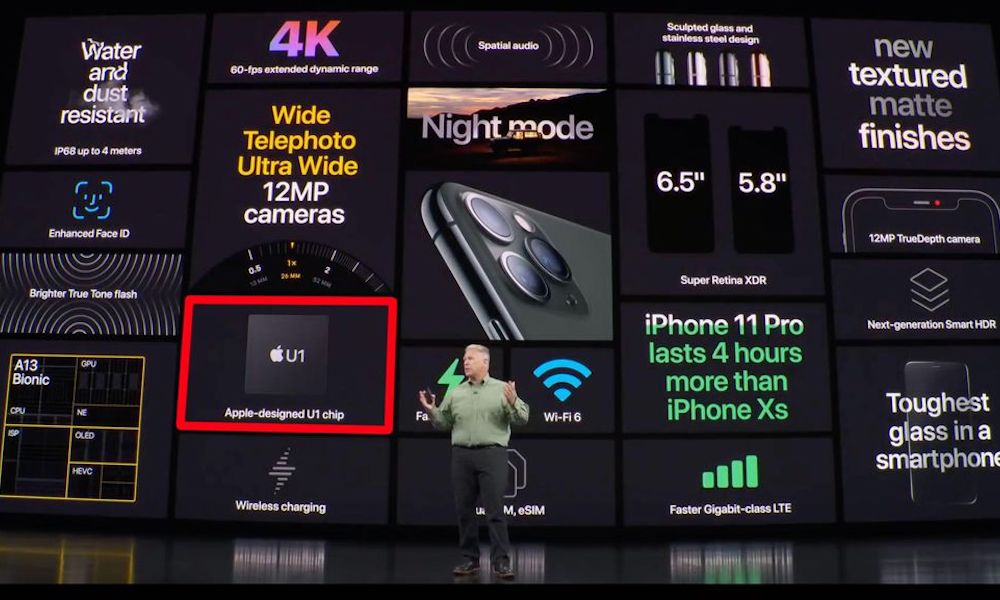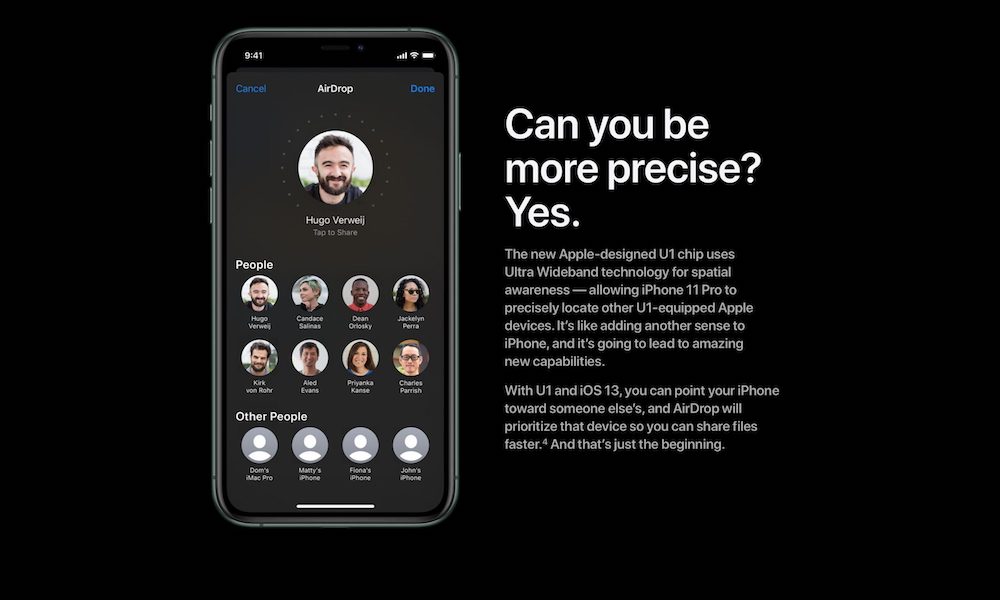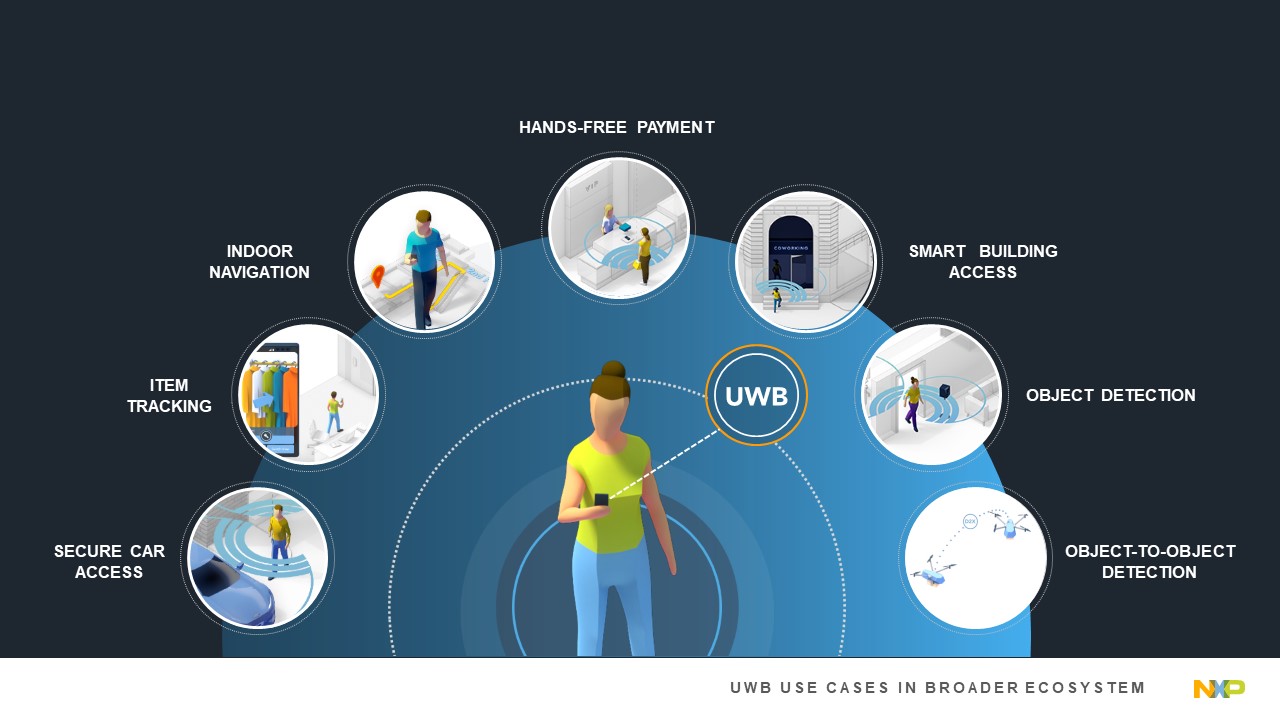Apple Leads the Way in Ultra-Wideband Adoption, Other Brands Follow Suit
 Credit: CNET
Credit: CNET
Toggle Dark Mode
It looks like Apple has once again taken a somewhat niche technology and helped to push it into the mainstream, this time in the case of Ultra-Wideband, where many other companies are now following Apple’s lead in adopting the technology now that the iPhone has broken the ice.
While Apple didn’t invent the idea of Ultra-Wideband (UWB), it did create a revolutionary new U1 chip that it introduced in the iPhone 11 to take advantage of the emerging technology, and even back then many predicted that it would be the start of an ‘Ultra-Wideband revolution’ as it drove new applications for the short-range, highly precise wireless technology.
Although so far, the actual implementations of UWB on Apple devices — a list that currently includes only the iPhone 11 and iPhone 12, Apple Watch Series 6, and HomePod mini — have been somewhat mundane compared to the actual potential that UWB offers.
When Apple first debuted the new U1 chip in late 2019, its sole purpose was to help users locate AirDrop partners more easily — a cool but arguably unnecessary feature — and since then, the only new thing to have come out of it is better handoff with the HomePod mini, which has yet to make it out of beta.
While these are fun ideas, they’re hardly game-changers in and of themselves, but don’t let these fool you — UWB promises a lot more and will undoubtedly soon be the force behind several practical features that we’ll someday wonder how we ever lived without.
These include things like indoor navigation — a feature that was rumoured to be coming to the iPhone 11, and although it has yet to fully materialize, it also relies on there’s no doubt that the U1 chip laid the foundation for it, it requires a lot of groundwork to get venues like shopping malls on board before it could actually roll out.
Similarly, Apple’s upcoming AirTags are also expected to feature a U1 chip for more precise location, likely using augmented reality to see exactly where your missing items are in a room, but it’s not just going to be AirTags either; Apple has opened up its Find My network to third-party manufacturers, and Tile is already building its own Ultra-Wideband tracking tags — although it still remains to be seen if Tile will be on board with Apple’s ecosystem or not.
Where Apple Leads, Others Follow
As a new report by DigiTimes points out, the adoption of Ultra-Wideband has been exploding since Apple’s debut of the U1 chip in the iPhone 11, with leading smartphone makers like Samsung and Xiaomi bringing out their own UWB-enabled handsets such as the Galaxy Note 20 Ultra last year.
Samsung has gone even further with the introduction of its own SmartTags, which also leverage UWB technology to not only communicate with nearby smartphones, but even to activate compatible smart home devices as part of Samsung’s SmartThings ecosystem.
More significantly, however, it looks like even more smartphone makers are preparing to get into the game, with Digitimes adding that “other China-based smartphone vendors including Oppo and Vivo are expected to adopt UWB technology for their flagship models.”
Meanwhile, BMW just announced support for UWB digital car keys, but for now, at least, this is going to be exclusive to iPhone users, despite the existence of UWB-compatible Android smartphones. In fact, BMW’s press release specifically calls out “the technology found on the U1 chip of iPhone,” as being key to the feature (no pun intended).
Apple has been a member of the Car Connectivity Consortium for some time, it notably has yet to join the more wide-reaching UWB Alliance or FiRa Consortium, which focus on broader uses of the technology, suggesting that in the short term it’s more actively pursuing Car Key partnerships with various auto manufacturers than trying to break new ground, although that certainly seems likely to change in the future.








